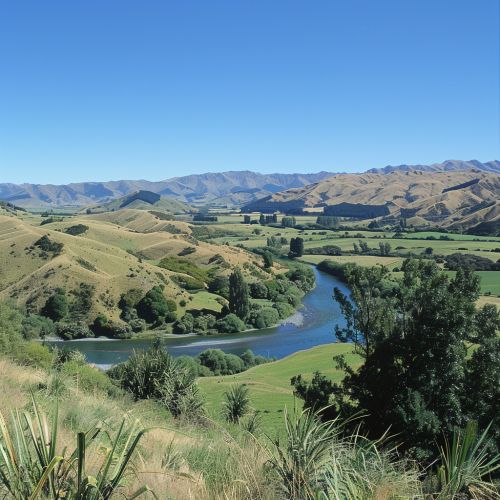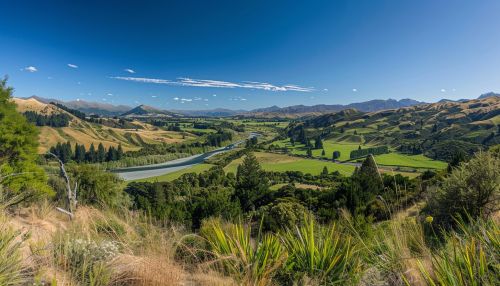New Zealand
Geography
New Zealand is an island country located in the southwestern Pacific Ocean. It consists of two main landmasses—the North Island (Te Ika-a-Māui) and the South Island (Te Waipounamu)—and around 600 smaller islands, covering a total area of 268,021 square kilometres.


The country is long and narrow, with about 15,000 km of coastline and a maximum width of 400 km. It is notable for its diverse topography, which includes vast mountain ranges, steep fiords, pristine lakes, raging rivers, scenic beaches, and active volcanic zones.
Climate
New Zealand has a largely temperate maritime climate, with mean annual temperatures ranging from 10 °C in the south to 16 °C in the north. The country experiences relatively little air pollution compared to many other countries, which makes New Zealand's weather some of the clearest and cleanest.
Flora and Fauna
New Zealand's isolation for 80 million years has influenced evolution of the country's species of animals, fungi and plants. They have either radiated into diverse forms, adapted to new environments, or have been introduced by humans. This has resulted in unique biological characteristics, and a high proportion of endemic species.
History
The history of New Zealand dates back at least 700 years to when it was discovered and settled by Polynesians, who developed a distinct Māori culture. The first Europeans known to have reached New Zealand were Dutch explorer Abel Tasman and his crew in 1642.
In 1840, representatives of the United Kingdom and Māori chiefs signed the Treaty of Waitangi (Te Tiriti o Waitangi), which declared British sovereignty over the islands. Today, the majority of New Zealand's population of 5 million is of European descent; the indigenous Māori are the largest minority, followed by Asians and Pacific Islanders.
Economy
New Zealand has a modern, prosperous, developed economy. The service sector dominates the national economy, followed by the industrial sector, and agriculture. International tourism is a significant source of revenue.
Culture
The culture of New Zealand is essentially a Western culture influenced by the unique environment and geographic isolation of the islands, and the cultural input of the indigenous Māori people and the various waves of multi-ethnic migration which followed the British colonisation of New Zealand.
